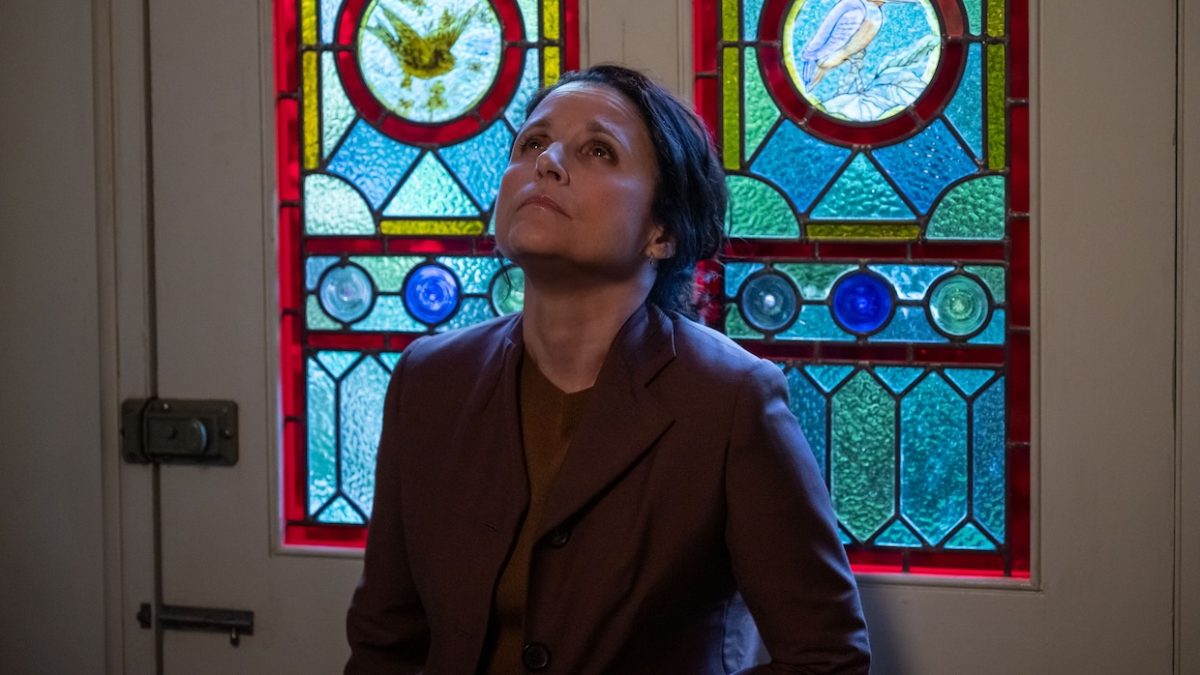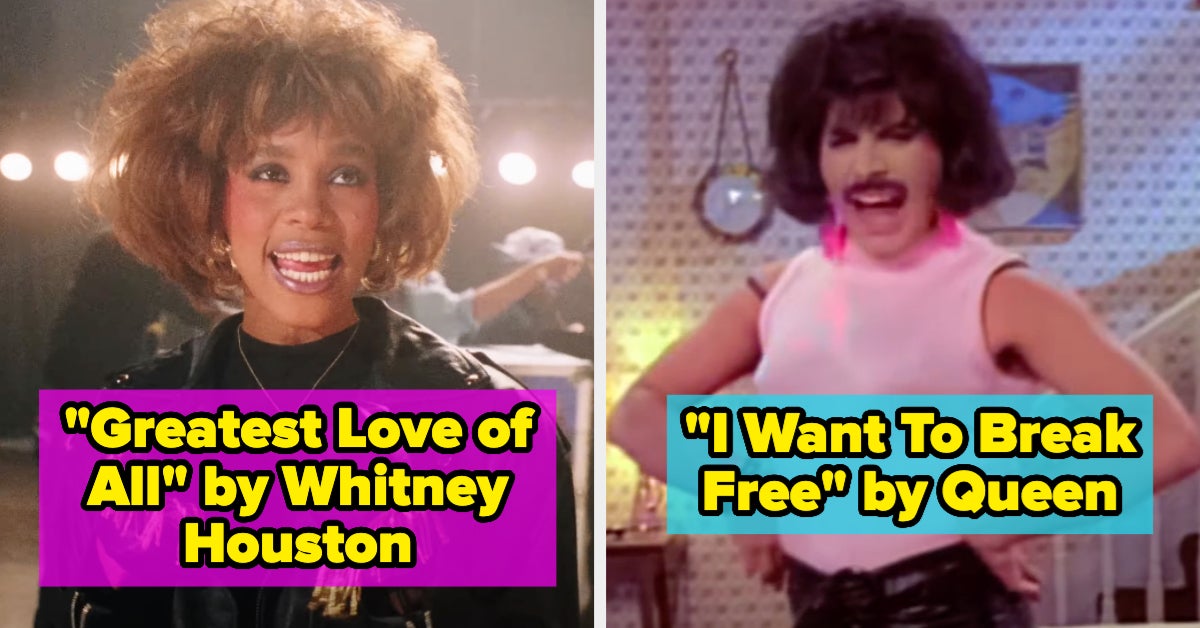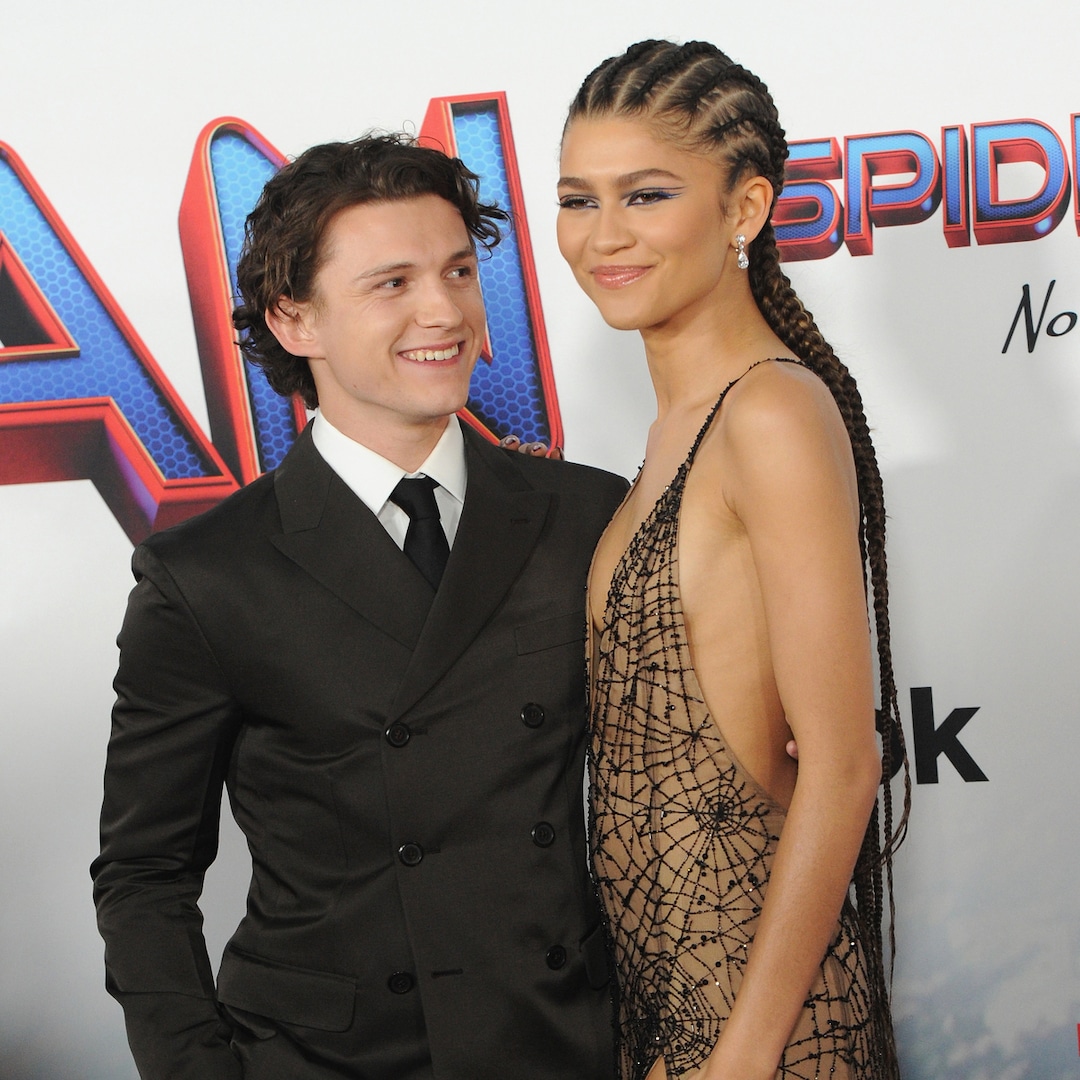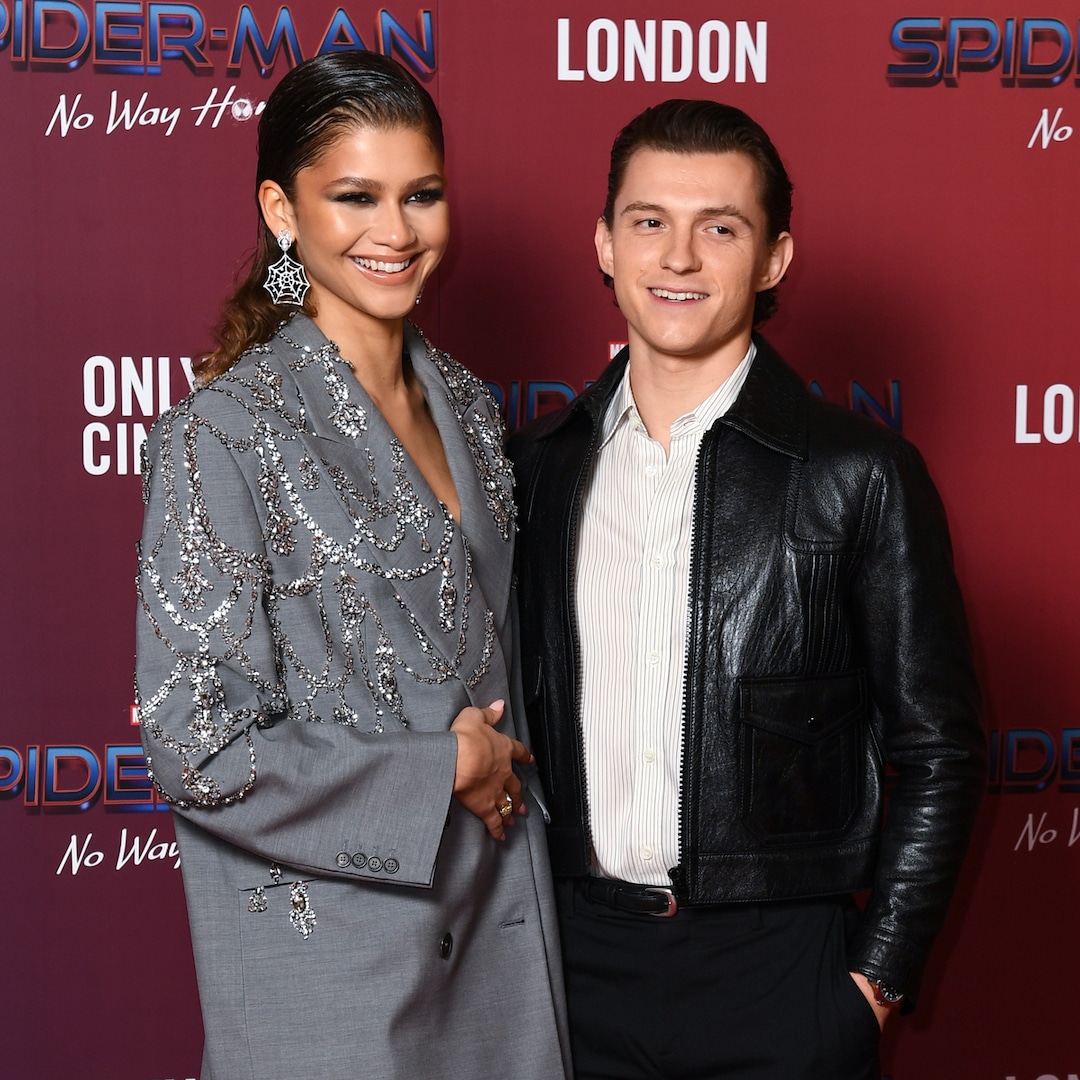
“Massive Decisions Can Be Made In the Mix”: Composer Anna Meredith on Her Film Score Career
Jul 9, 2024
Julia Louis-Dreyfus in Tuesday
In 2012, Scottish composer Anna Meredith released her first non-classical-music recording, Black Prince Fury, a four-track EP opening with what immediately became her signature tune: “Nautilus,” a ferociously escalating blast of brass running arpeggios up and down at increasingly overwhelming volume. It’s at once visceral and programmatic, applying classical discipline to an earth-shaking instrumental in a mission statement that also opened Meredith’s first full-length album, 2016’s Varmints. In an interview with The Guardian’s Laura Snapes at the time, Meredith was insightful about the economics of choosing to move from the realm of classical music, where she wrote work paid for by commissions, to the more perilous world of recording and touring as a band. “It’s made me realize how much support and infrastructure there is for classical music,” she explained. “There’s this assumption that there’s money in pop. No—my contemporary art music funds my burgeoning middle-aged pop sensation career!”
Bo Burnham reached out to ask Meredith to write her first film score for 2018’s Eighth Grade; since then, she’s become an in-demand composer for projects including last year’s The End We Start From and the recent A24 release Tuesday. That work has continued alongside tours for Varmints and 2019’s follow-up Fibs (a third album has been in the works for some time now) and tours with her excellent live band, where every show ends with an unlikely cover. On her first American tour, it was The Proclaimers’s “I’m Gonna Be (500 Miles),” reworked with a more chromatic baseline; the second tour brought a surprisingly straightforward rendition of Metallica’s “Enter Sandman,” while the last tour ended with a medley that included ABBA. (None of these covers have been recorded, though “ALR,” an endearing reworking of Erasure’s “A Little Respect,” is on her second EP, Jet Black Rider.) As a big fan who’s been at all three of those shows, I took the opportunity of Tuesday’s release to talk to Meredith about her film score work.
Filmmaker: You’ve said working in film is something you’d been wanting to do for a while. Is it just monetary, an interest in the form, the idea of working for somebody else without having to be the autonomous driver? What’s the primary allure?
Meredith: It’s a combination of things. So much of the music I made pre doing electronic stuff doesn’t exist in any form beyond the premiere. A lot of contemporary classical music isn’t recorded or repeated; there’s this culture of “One performance, then on to the next.” That made me want to get into making albums so you have this artifact. Similarly, with film—OK, there’s tons of films, but you’re working towards a thing that will exist, that has a legacy to it. And yeah, definitely a sense that so much of the projects that I do are on me—self-driven, self-funded. Nobody’s asking for them, nobody’s making it happen. That’s a really scary and exciting thing, but I wanted to have some things [made as part of] a team working on something bigger than any of us. I don’t have anything else I do where that’s the case; everything else is more in my control, which has pros and cons. And yeah, there’s definitely a financial [element] to this work as well. So, it seemed like a good fit. I know that I write tension and certain kinds of energy well, and I’ve definitely heard films where I thought, “Oh God, I would have loved to have done that.” I just thought it was impossible for a while.
Filmmaker: Was it something you’d been thinking about before Bo Burnham reached out to you?
Meredith: I definitely had been thinking [about it] for a while, but didn’t have a clue how to make it happen. I knew as well that it was important for me to find the right film, and not just take anything, because I know if someone had a very specific other composer’s sound they wanted, I would do a really shit job trying to sound like them. So, I tried to wait and find the right project.
Filmmaker: In one interview you said something like, “I wouldn’t be good at sounding like Michael Nyman.” Are there specific comps that you’ve gotten that you’ve had to fend off? And what is your relationship to the bias that directors often develop when they have a temp score and then eventually don’t actually want a score—they actually just want the temp score, but it’s not an option?
Meredith: It’s definitely challenging, trying to work out what it is about the temp that is actually working. Quite often, I think it can just be familiarity. Even though the intention is there to replace it, it can be incredibly difficult to get to the bottom of what it’s doing and feel that the thing you’ve written is ticking all the boxes of what that track needs to do. Before I take the film, I try to make sure that they’ve heard as much of my stuff as possible and know what they’re getting, and ideally try and get them to temp to my own music as much as possible. I have this intention, something that I’ve never really managed to make happen, where I would maybe do a week’s work earlier on, some basic stems of ideas for anxiety, energy, warmth that they could then temp with, rather than coming to the whole process after it’s all been edited down to temp, whether that’s mine or anyone else’s. I failed to make this technique happen, but I think it would make it all a lot smoother.
Filmmaker: One thing you’ve brought up was that when working on The End We Start From, you knew there wasn’t the budget for a fully notated score. Could you discuss what the the least expensive versus the most expensive version of doing a score is and how those costs break down for you? I assume part of the reason people come to you is because you are from a composing background, and you can presumably do your own arrangements. I don’t know if you also record your own work or have an engineer that you work with regularly.
Meredith: Understandably, a lot of people will say they want an orchestral thing, and [I] try and work out why that is, and [point out] that there might might be disadvantages for the project, not just the work involved for me. Writing anything notated for players is great and adds loads of really important sound and character and material, but also a lack of flexibility. With a small budget, once you’ve recorded it, you can’t really do much with certain types of material. If someone suddenly needs something to be shorter or faster or whatever, this really limits how much you can rework stuff. So, with the projects I’ve been doing, I have been suggesting a combination of electronics and some real instruments for specific cues where they need them. The electronics might have a combination of some sample instruments, but I try and flesh that out with one or two players multi-tracking with different instruments. I don’t do the engineering but I’ll be there—it’s a collaborator I work a lot with. I try to be economical about how much of that process there is for a project, because it’s expensive: you’ve got to record it, then edit it down to the best takes.
Filmmaker: What is the most musicians you’ve ever worked with on a score?
Meredith: Oh, like four. No big ensembles. I can obviously write for orchestra and I’d be happy to for the right thing, but at the moment I’m trying to be very careful about what I can achieve with a more manageable, little recording studio.
Filmmaker: That’s funny, because The End We Start From sounds, presumably deliberately, like a full string section. How much multi-tracking is involved in that?
Meredith: I actually can’t remember how many layers. Obviously there’s a lot of sample strings and synth strings as well, and then we’ve warmed that up with some solo lines. We’re actually doing an orchestral version of that score, so I’m going to be re-orchestrating that—actually someone else probably, realistically—for acoustic symphony orchestra. It’s a weird inverse version.
Filmmaker: So what’s the most volume in minutes of score that you’ve written for a project versus the least?
Meredith: I couldn’t really tell you the least. I feel like the most has been 50, something like that. Sometimes that stuff’s written in five or six weeks; I’m writing a band album now, and I’ve been working on that for four or five years. Again, that’s sort of the appeal, the speed at which you have to create new stuff and evolve ideas and change things. Normally, I have my own barometer of when I can afford to move on and when you know an idea is ready. With a score, there’s so many people who need it apart from me: the director, funders, other people who decide when something’s ready. You just have to be available and go for it and write frenzied amounts of music in a short amount of time. I’m sure other people would be like “Oh, that’s completely normal,” but I was shocked at how much I’ve managed to write. I feel I’m a fast writer, but you just create an unbelievable amount of content very quickly.
Filmmaker: Have you received direct or indirect feedback from funders on your scores?
Meredith: Not directly, but there’s definitely been comments. Luckily, all the directors I’ve worked with have been really supportive of me. Any anxieties about the music being too strong or unexpected or anything, the directors have really fought for it.
Filmmaker: You’ve talked about when you saw Eighth Grade at Sundance for the first time, you were surprised by how loud you were up in the mix and the mix supervisor leaned over and told you “Oh, we put you high up in the mix.” Knowing that now, do you have discussions in advance about how prominent your score is going to be in the mix, and what’s your relationship like with the sound editor in in a general sense?
Meredith: It’s been different every single time. That film was such a gift on that front, and I had no idea how good I had it at the time. I don’t think you can go in with great intentions about how prominent the score is. There’s so many people, sound effects or dialogue people, who are equally trying to fight for their corner of space, and they’re actually there for the mix, which I’ve only been at once. Obviously, you feel the music’s the most important thing, and you know everyone else has got their own things to think about. I definitely would like the music to be louder sometimes, I feel it would be better, but I get that it’s a compromise. Sometimes I haven’t been there and wished I had, because you see the final film and it’s like “Oh god, that’s so quiet.” I know that’s a really common thing with so many composers: all the detail you wrote when you were working with the director, the music’s pushed up super loud and you’ve agonized over all the sound, then it gets pushed right back. I haven’t had too many experiences [like that] yet; I’m sure it will happen.
Massive decisions can be made in the mix—“We should just cut that cue” or “What does it sound like if we just take the the drums from this track and lose the rest?”—that feel pretty scary when you’ve labored to make it feel perfect. But there’s bigger things at play; someone feels the film needs just the drums, and there’s not much you can do at that point in the process. This is a relatively new part of my career and I’m learning as I go, but I’m definitely trying to be as protective of the music as I can and work with music editors who are gonna fight for it.
Filmmaker: What was the one film that you were at the mix for and how did that change the process?
Meredith: Tuesday. I was able to chirp up: “You really need to hear this cycle to make sense of the music. Do you think we could push it up a bit there?” It was an amazing mixing studio, and to hear everything for the first time on a massive system was great. They were mixing over numerous days and I was only there for three or five, but I was really glad. It was worth it for one particular [track] where I really hoped that the music could be a big feature, and it is. If the score had not been able to feature at that moment, it would have been pretty gutting, but as it is it’s great. Sounds really loud!
Filmmaker: You’ve talked a little bit about the difference between having the the cues as they are in the film and the cues as they can appear on the soundtrack release. I’m wondering how that manifests itself.
Meredith: It’s a funny process, making the soundtracks, because quite often you’ve got these super-short cues, 20-second things, and [are] trying to work out whether you include everything, whether you extend anything, how much to keep the order the same as it is for the film. Again, it’s super quick. It’s not like making an album; I can’t spend too long on it. Sometimes the turnaround for producing a soundtrack can be next to no time, so you’ve got to be quite pragmatic and practical about dealing with the material and not put your album head on. You’ve still got to think of the soundtrack in relation to the film and be representative of what it is. I’ve never just released the cues purely and been like “Well, that’s literally what they were.” I’ve done some extension, but equally not tried to mutate them. You definitely think, “Well, if I was just writing this as a piece, I would have added this or done this or extended this or added these layers.” But that’s not what it is.
Filmmaker: And have you ever been involved in a 5.1 mix?
Merdith: I haven’t been. My stuff has been done in 5.1 but I haven’t been there for it.
Filmmaker: Is it especially discombobulating if you hear it in 5.1 and it’s separated out in ways that you didn’t intend?
Meredith: I thought it was quite fun when I was there for the Tuesday mix. The guy, [re-recording mixer] Andrew [Stirk]—super experienced, really decisive—was taking the stems and stuff is swirling all over the place. He’s like, “Oh, I think that would sound cool if we made this move here.” All that stuff’s quite exciting. Mixing is not my forte and that side of production I completely defer to any number of better people, apart from wanting stuff to be punchy and loud and direct.
Filmmaker: Have you ever been hired where the premise was something like, “We like this one cue from your albums, we’d like something that sounds like that”?
Meredith: Never for films. Maybe a bit more very early, for projects that haven’t panned out, there’s been a bit of “We’re wondering if you could do a more toned down or softer thing,” hence why it’s probably not been the right project to do. I’ve definitely had people referencing “Nautilus” for some stuff, but that’s been ads or other things. Normally I don’t like to try and replicate things. I always feel there’s new, different ways I can achieve the same effect, so I haven’t ever had to rip myself off—which I’m sure in the right time and circumstances I would do, because why not? It would be a challenge. I’ve had to edit existing pieces for scores, because a few of the scores I’ve done have used other pieces of mine. Inevitably they need to be heavily edited to fit in with the film, and it makes you much less precious because it’s all in service of something else. You might be initially horrified that you’re going to jump from this thing to this thing which obviously the music was never intended to do. It’s been actually quite a good development; I feel much more chilled about if if it works for the film or the ad than I think I used to be, where I’d be very resistant to any change to the source material.
Filmmaker: Do you make a point of watching every film that your work is licensed in?
Meredith: No. I’ve definitely watched every proper film [with a] big score that I’ve done. There’s definitely been some things where music’s been synced where I haven’t written anything that people have told me about that I still haven’t watched. I know that “Nautilus” is in the David Beckham documentary and keep meaning to watch that, but I don’t make a point of it. Right now, because I’m writing, I’m trying to not get too thrown by stuff that might freak me out or put me off, so I’m keeping my work environment quite chilled.
Filmmaker: That being said, is there a use of one of your tracks, not purpose-written, that when you saw it you were like, “Oh, that’s an interesting recontextualization”?
Meredith: Well, it’s an interesting thing. In the UK we all pay a license fee, which is what pays for the BBC. It means that everything on the BBC is ad-free and independent and all that really good stuff, but in terms of music licensing there’s a blanket license. That means the BBC can license tunes [and] you might not know about it in the same way that, if [they] were a commercial TV station or something, [they’d] have to pay for permission and run the edits by someone. It’s actually been quite fun, seeing where bits of music have popped up. “Nautilus,” there must be someone there who knows that tune; they used it when England were in the World Cup final, in the montage of how they got to this point. Then they just used it again last week for the start of the Euros for another montage of England’s history of football through the ages. I didn’t know those were coming and my phone is going mental with all my friends saying “Oh my god.” There was some documentary about mushrooms and something about humpback whales. We all hear stuff differently, so I quite enjoy seeing how people interpret stuff.
Filmmaker: Lastly, as I’m sure you know, over the last decade or so many trailers have brought about a so-called “trailercore” genre, where popular songs are played slowly and mournfully. You end every show with a very upbeat cover. Have you been approached for the purpose of, or considered, pushing back at trailercore with your more cheerful brand of covers?
Meredith: Quite often, a trailer is farmed out to a whole trailer house, isn’t it? No, no firm requests from the trailer companies. I think my cheesy covers are maybe an acquired taste. I have a lot of people who are completely confused about why I would round off an evening of quite intense music with something disgraceful, but it’s a nice bookend for me. So, I’ve never thought about taking those tunes into a more serious context. Maybe it’s a brilliant money-making idea, and I’m missing out and should immediately try and get some chirpy bangers into Deadpool 6 or whatever.
Publisher: Source link
These Are '80s Songs That Gen X'ers And Old Millennials Grew Up On, And There Is No Way Anyone Under 27 Has Heard All Of These
And if you are over 40, then you probably remember when these were brand-new and not songs kids are discovering on TikTok.View Entire Post › Disclaimer: This story is auto-aggregated by a computer program and has not been created or…
Jan 12, 2025
Tom Holland Asked Zendaya’s Dad for Permission Before Proposing
Tom Holland wove the perfect engagement for Zendaya. Less than a week after the Spider-Man actress debuted a 5-carat diamond ring on her left ring finger at the 2025 Golden Globes, Tom's father Dominic Holland confirmed the couple's engagement, sharing a few parts about the special day, including one important detail.…
Jan 12, 2025
Jennifer Lopez Finally Understands Mi Gente Latino Meme
Jennifer Lopez Finally Understands Mi Gente Latino Meme Kicking off 2025, J.Lo is now promoting Unstoppable, a new biography drama in which she stars alongside Moonlight actor Jharrel Jerome. At the 2011 American Music Awards, Jennifer won Favorite Latin Artist…
Jan 11, 2025
Tom Holland's Dad Shares Insight Into Zendaya Engagement
Tom Holland became the greatest showman for his proposal to Zendaya. Just days after the Spider-Man actress turned heads at the 2025 Golden Globes with a 5-carat ring on that finger, Tom's dad... Disclaimer: This story is auto-aggregated by a…
Jan 11, 2025











